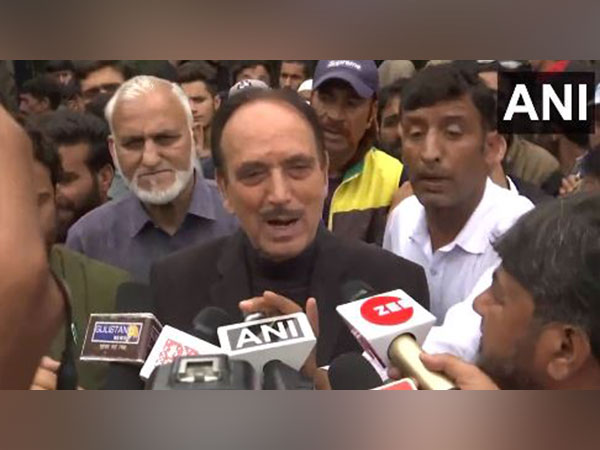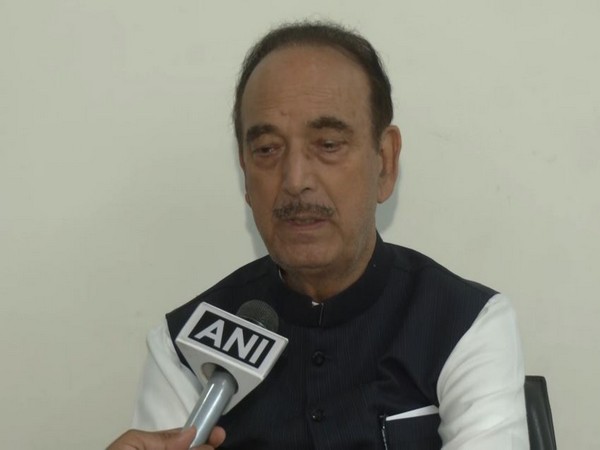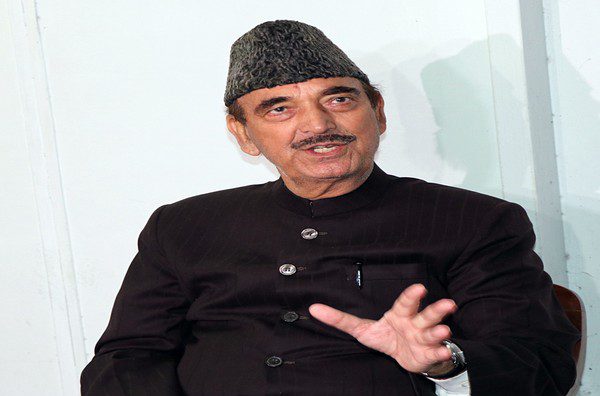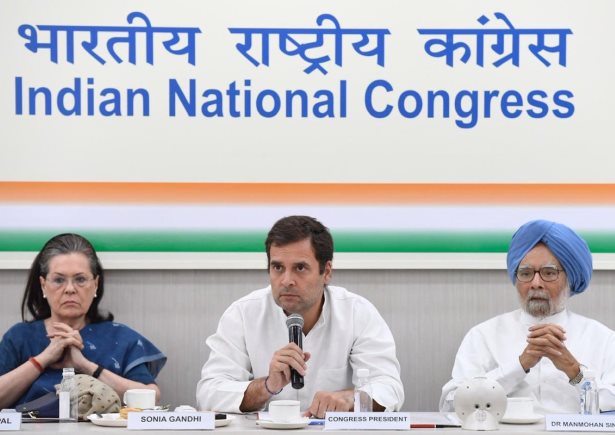Asserting that the construction of a new Parliament building was necessary, Former Jammu and Kashmir Chief Minister Ghulam Nabi Azad on Wednesday said that it is good that it has been constructed but the idea was mooted when PV Narasimha Rao was the Prime Minister.
He further refrained from commenting on the issue of which political party would be attending or boycotting the inauguration event of the new Parliament building.
“This is a technical issue. Parliamentarians who want to boycott this event or want to attend it is up to them. It is their point of view on how they want to perceive this event. Those parliamentarians will have to explain the reasons why they are boycotting the event. I don’t want to comment on who will be attending or boycotting the inauguration event,” Azad, Democratic Progressive Azad Party chief, told to ANI.
He also recalled the conversation related to the need for a new Parliament building between him and then Speaker Shivraj Patil when PV Narasimha Rao was the Prime Minister.
“At the time when PV Narasimha Rao was the PM, Shivraj Patil was the Speaker and I was the Parliamentary Affairs minister, Shivraj ji had said to me that a new and bigger Parliament building should be constructed before 2026. The construction of a new building was necessary, it’s good that it has been constructed now,” he said.
In a tweet, Rahul Gandhi said, “Not getting the President to inaugurate the Parliament nor invite her to the ceremony is an insult to the country’s highest constitutional post. Parliament is not made of bricks of ego but of constitutional values.”
Congress and eighteen other opposition parties have decided to boycott the inauguration of the new Parliament Building and stated that it “insults the high office of the President, and violates the letter and spirit of the Constitution”.
In a joint statement, the like-minded opposition parties said that Prime Minister’s decision to inaugurate the building by himself is “a direct assault on our democracy, which demands a commensurate response.” The new Parliament building will be inaugurated on May 28.
“When the soul of democracy has been sucked out from the Parliament, we find no value in a new building. We announce our collective decision to boycott the inauguration of the new Parliament building. We will continue to fight — in letter, in spirit, and in substance — against this authoritarian Prime Minister and his government, and take our message directly to the people of India,” the statement said.
The nineteen opposition parties who will boycott the inauguration are – Congress, DMK, Aam Aadmi Party, Shiv Sena (UBT), Samajwadi Party, TMC, Janta Dal (United), Nationalist Congress Party, Communist Party of India (Marxist), RJD, Indian Union Muslim League, National Conference, Communist Party of India, Jharkhand Mukti Morcha, Kerala Congress (Mani), Vidhuthalai Chirunthaigal Katchi, Rashtriya Lok Dal, Revolutionary, Socialist Party and Marumalarchi Dravida Munnetra Kazhagam.
The statement said that the inauguration of a new Parliament building is a momentous occasion.
“Despite our belief that the government is threatening democracy, and our disapproval of the autocratic manner in which the new Parliament was built, we were open to sinking our differences and marking this occasion. However, Prime Minister Modi’s decision to inaugurate the new Parliament building by himself, completely sidelining President Murmu, is not only a grave insult but a direct assault on our democracy which demands a commensurate response,” it said.
The opposition parties said that Article 79 of the Constitution states that there shall be a Parliament for the Union which shall consist of the President and two Houses to be known respectively as the Council of States and the House of the People.
“The President is not only the Head of State in India but also an integral part of the Parliament. She summons, prorogues, and addresses the Parliament. She must assent for an Act of Parliament to take effect. In short, the Parliament cannot function without the President. Yet, the Prime Minister has decided to inaugurate the new Parliament building without her. This undignified act insults the high office of the President, and violates the letter and spirit of the Constitution. It undermines the spirit of inclusion which saw the nation celebrate its first woman Adivasi President,” the statement said.
The statement alleged that the ruling party at the Centre has sought to suppress the voice of opposition parties in Parliament.
“Undemocratic acts are not new to the Prime Minister, who has relentlessly hollowed out the Parliament. Opposition Members of Parliament have been disqualified, suspended and muted when they raised the issues of the people of India. MPs from the Treasury benches have disrupted Parliament. Many controversial legislations, including the three farm laws, have been passed with almost no debate, and Parliamentary Committees have been practically made defunct,” the statement said.
Prime Minister Narendra Modi laid the foundation stone of the new Parliament Building on December 10, 2020. It has been built in record time with quality construction.
In the present building of the Parliament, there is a provision for the sitting of 543 Members in the Lok Sabha and 250 in the Rajya Sabha.
Keeping in view the future requirements, arrangements have been made for a meeting of 888 members in the Lok Sabha and 384 members in the Rajya Sabha in the newly constructed building of the Parliament. The joint session of both Houses will be held in the Lok Sabha chamber. (ANI)
Read More: lokmarg.com




